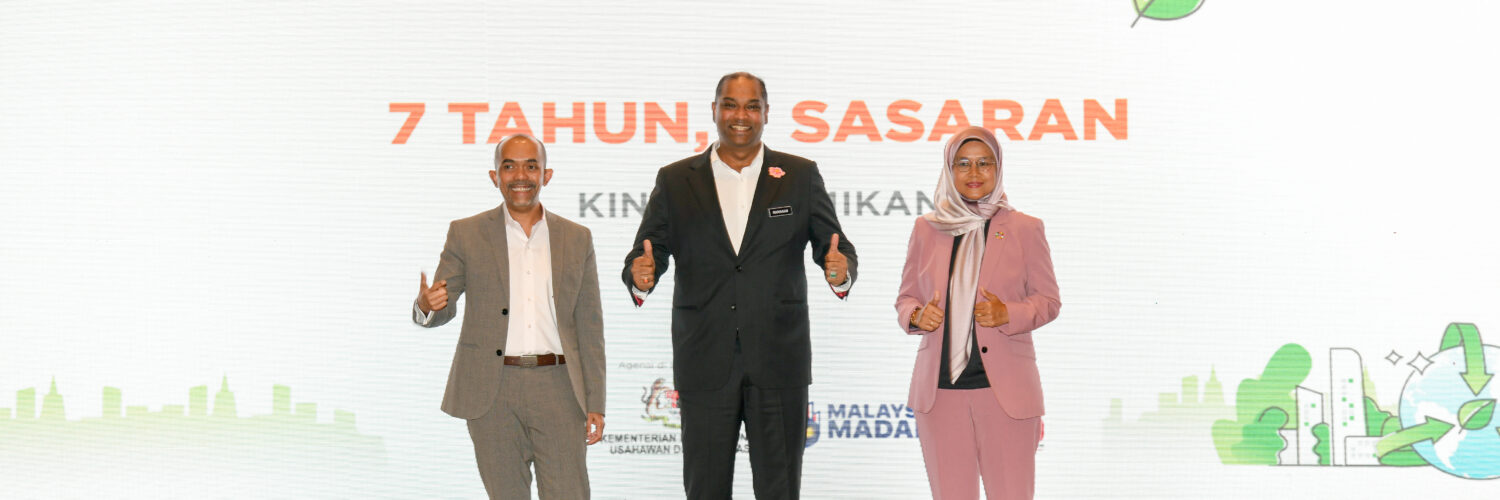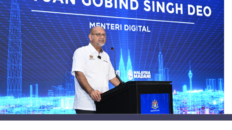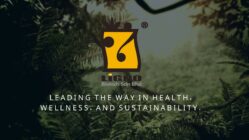SME Bank leads as the first Development Financial Institution in Malaysia to introduce a seven-year sustainability roadmap.
Kuala Lumpur, 29 October 2024 – Small Medium Enterprise Development Bank Malaysia Berhad (“SME Bank”) has reaffirmed its commitment to sustainability with the launch of its Sustainability Roadmap 2.0. The new roadmap builds on the success of the previous three-year plan, driving the Bank towards ambitious goals, including RM10 billion in sustainable financing by 2030. This aligns with Malaysia’s aspiration to achieve Net Zero greenhouse gas (GHG) emissions by 2050. Present at the event was Datuk Dr. Mohammad Hardee Ibrahim, Acting Group President/CEO of SME Bank, as well as Zakiah Mat Esa, Chief Sustainability Officer of SME Bank.
The Sustainability Roadmap 2.0 follows the completion of Roadmap 1.0 (2021–2023), during which SME Bank approved RM5.89 billion in sustainable financing. These approvals accounted for 95% of the Bank’s total financing in 2022 and 2023, reflecting SME Bank’s growing role in environmental, social, and governance (ESG) initiatives.
SME Bank is proud to be the first development financial institution (DFI) in Malaysia to roll out a comprehensive seven-year sustainability roadmap. The Roadmap 2.0 was developed by internal teams, reflecting a deep commitment to embedding ESG principles in general operations. This initiative aligns with national goals and strengthens SME Bank’s role as a key driver of sustainable development.
Building on the momentum, SME Bank aims to approve RM10 billion in sustainable financing by 2030, including RM1 billion for green and transitioning projects. The initiative is anchored by innovative programs such as the RM100 million Dana Kelestarian, allocated to SME Bank under the National Budget 2025.
The Roadmap 2.0 spans three phases. The first phase focuses on meeting regulatory requirements, followed by integrating sustainability practices into operations during the second phase.
The final phase emphasises optimising these initiatives for maximum impact. The goal is to achieve carbon-neutral operations by 2030 by gradually reducing fuel consumption and electricity emissions throughout the seven-year plan.
The Roadmap 2.0 is grounded on three key pillars:
- Responsible Banking
- Responsible Business Practices
- Creating Social Impact
These efforts align with Bank Negara Malaysia’s Climate Risk Management and Scenario Analysis (CRMSA) Policy and are supported by the Bank’s Sustainability Sukuk Framework (SSF), which meets international standards, including those from the ASEAN Capital Markets Forum (ACMF) and International Capital Market Association (ICMA).
Since 2021, SME Bank has issued three tranches of Sustainability Sukuk totaling RM2 billion. These issuances have earned seven awards, including the Best ASEAN Green Sustainable and Responsible Investment Sukuk by Alpha Southeast Asia and SRI & ESG Deal of the Year Awards by Islamic Finance News.
In addition to financing, SME Bank is supporting SMEs through capacity-building programs. Under the Skim Insentif Kelestarian (SIK), 1,508 SMEs were trained between July 2023 and June 2024, with the ongoing Phase 2 program helping 330 participants develop advanced ESG skills.
For more information on SME Bank’s sustainability initiatives and financing programs, visit www.smebank.com.my.








